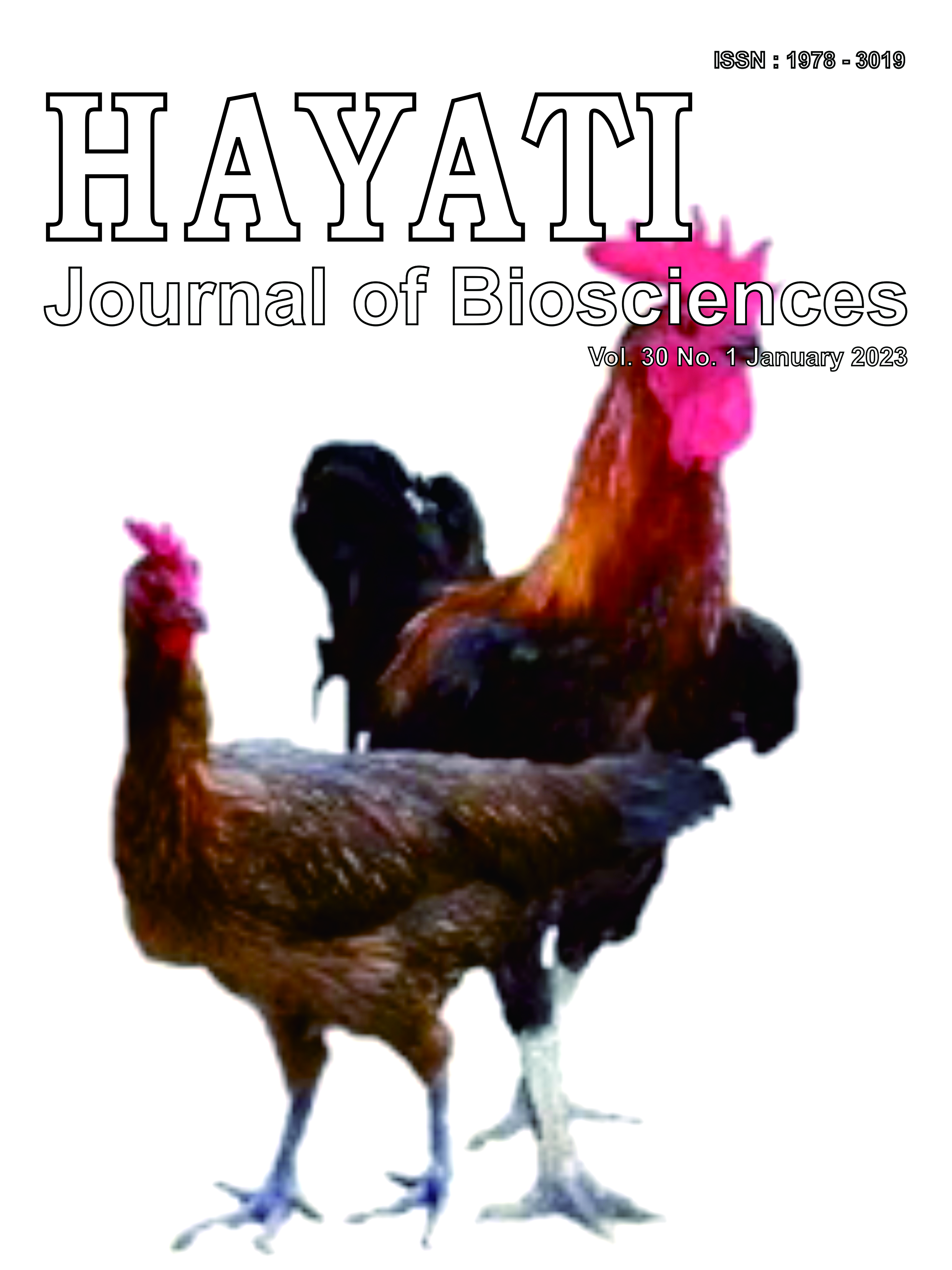Isolation of Native Plant-Derived Exosome-like Nanoparticles and Their Uptake by Human Cells
Abstract
The exosome is a nano-sized vesicular particle commonly secreted from eukaryotic cells to extracellular space. Exosome functions in cellular communication, nutrients or bioactive compounds delivery, and cellular immunity. It is believed that plant-derived exosome-like particle (PDEN) potential to deliver nano-bioactive compounds to the human body. As Indonesia is one of the herbal centers of the world, we are encouraged to develop natural richness for human welfare. The study aimed to verify various methods to isolate exosomes from the fresh ginger rhizome and quina cells and examine the ginger PDENs' capacity to internalize in vitro human cells. The PDENs isolation was carried out by centrifugation and precipitation. The particles were observed through a transmission electron microscope, dynamic light scattering, and particle size analysis. Differential ultracentrifugation combined with PEG6000 provided a better size range of particles. Nanoparticles tracking analysis performed the concentration of particles within a specific size range. Ginger and quina PDENs size ranged from 40-650 nm, and the concentration was 3.6 × 107 and 2.8 × 106, respectively. The PKH67-labelled ginger PDENs were taken up by human dermal fibroblast and human Wharton's jelly mesenchymal stem cells after 30 minutes and 21 hours. DPPH assays revealed that ginger PDENs have antioxidant activity, indicating the presence of some nano-molecules in those particles. This study would be the baseline for developing ginger PDENs as a functional food with nano-ingredients, or as an effective vehicle of nano-drug, for human health.
Downloads
Copyright (c) 2023 Diah Ratnadewi, Christofora Hanny Widjaja, Anggraini Barlian, Rizka Musdalifah Amsar, Ika Dewi Ana, Atik Choirul Hidajah, Hari Basuki Notobroto, Triati Dewi Kencana Wungu

This work is licensed under a Creative Commons Attribution-NonCommercial 4.0 International License.
HAYATI J Biosci is an open access journal and the article's license is CC-BY-NC. This license lets others distribute, remix, tweak, and build upon author's work, as long as they credit the original creation. Authors retain copyright and grant the journal/publisher non exclusive publishing rights with the work simultaneously licensed under a https://creativecommons.org/

























.png) IPB University
IPB University Department of Biology
Department of Biology The Indonesian Biological Society
The Indonesian Biological Society 

